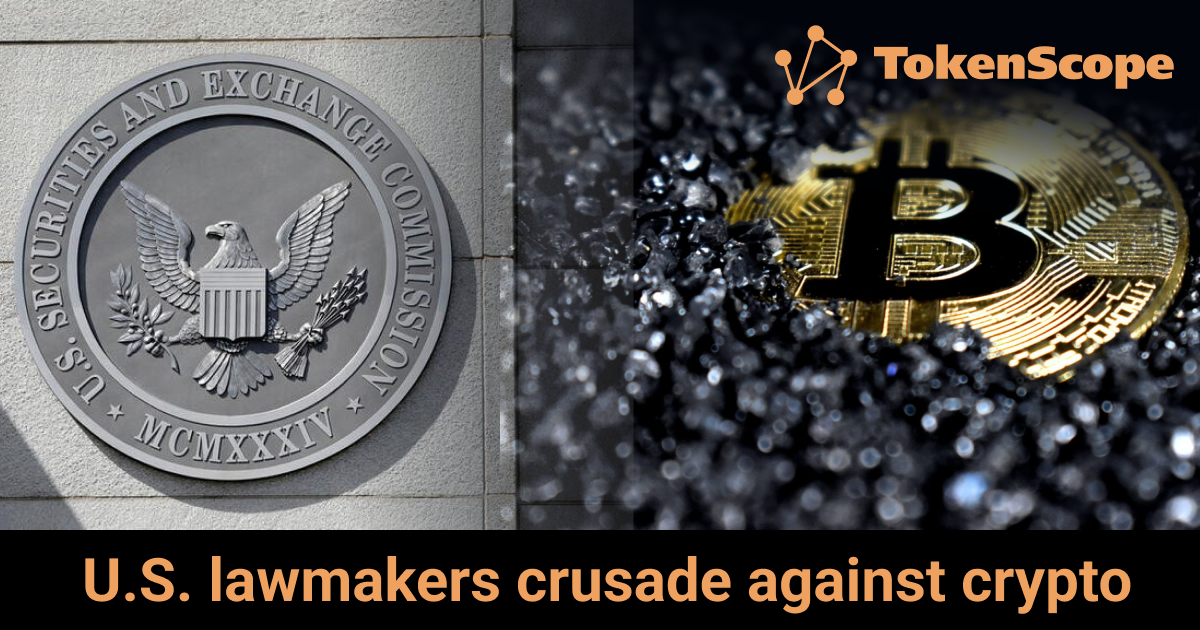U.S. financial watchdogs attack crypto

The Commodity Futures Trading Commission (CFTC) sued Binance and its CEO Changpeng Zhao this Monday. The regulator issued a press release accusing Binance's operating entities, Zhao personally and exchange’s former compliance officer Samuel Lim of ignoring U.S. commodity futures rules and operating an unregistered commodity exchange.
Since at least 2021, the CFTC has been probing Binance over whether it failed to keep U.S. residents from buying and selling crypto derivatives. CFTC rules generally require platforms to register with the agency if they let Americans trade those products.
In its continuing litigation against the defendants, the agency seeks disgorgement, civil monetary penalties, permanent trading and registration bans, and a permanent injunction against further violations of the CEA and CFTC regulations, as charged.
CZ issued a response calling a civil complaint «unexpected and disappointing» and rejecting all of issues alleged in it. He pointed out that complaint contains an incomplete recitation of facts, and the characterization of many of the issues alleged in the complaint is totally incorrect.
This is not the first CFTC lawsuit against crypto companies, although it is the most significant one. In 2022, the CFTC filed 82 lawsuits against representatives of the financial sector in the amount of $2.5 billion, including 18 crypto companies, as stated in the Commission’s annual report.
If the CFTC wins and cryptocurrencies are recognized as commodity in the U.S., it will greatly limit access to many related financial products by non-professional investors. And not only in the USA as the current lawsuit is against Binance companies that are registered outside the U.S. but are believed to serve U.S. customers. Thus, many crypto exchanges will not be able to feel safe, because the U.S. regulators will be able to present them with claims at any time.
Almost simultaneously, on March 22, the U.S. Securities and Exchange Commission (SEC) sued the Tron Foundation and its founder Justin Sun. The justification for the claim was trading in unregistered securities, as well as market manipulation and fraud. The watchdog alleged TRX and BTT are unregistered securities, and claimed Sun created an «extensive wash trading» program to boost their trading volume.
The SEC stated in a press release it was suing Sun, the Tron Foundation, the BitTorrent Foundation and BitTorrent (now known as Rainberry) over the sale of tronix (TRX) and bitTorrent (BTT) tokens, which the regulator described as unregistered crypto asset securities.
Tron's native token TRX fell 13% on the SEC charge. Other tokens related to Justin Sun, including Huobi (HT), Just (JST) and Sun Token (SUN) also fell more than 5% on Wednesday.
Back in 2020, the SEC accused blockchain company Ripple of trading unregistered securities. The Commission believes that XRP meets the U.S. definition of a security, since retail investors invest in the token on the expectation of making a profit from the activities carried out by the token’s issuer Ripple.
Ripple, on the contrary, claims that the company did not make profit promises for coins purchasers and the token itself doesn’t meet the creterion of large profits, and the token itself does not have the characteristics of a security under the Howey test, which suggests that the an asset should be worth investing in a common enterprise with the expectation of profiting from the efforts made by this enterprise.
On March 21, 2023, a message appeared on the official Ripple account in Twitter that the company had a good chance chance to win a lawsuit.
Nevertheless the Commission Chairman Gary Gensler constantly reminds us that he believes all cryptocurrencies, except Bitcoin, fall under the definition of securities and should be regulated accordingly.
Unlike the EU, where the MiCA bill is already ready to pass the European Parliament, the US «Responsible Financial Innovation Act and Crypto Regulations» bill proposal is still far from being complete. Global practice shows that cryptocurrencies still need its proprietary regulation, and lack of regulatory rules may lead to growing misunderstanding between companies and regulators.




